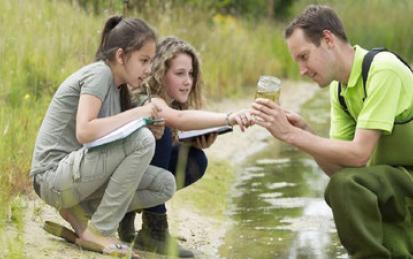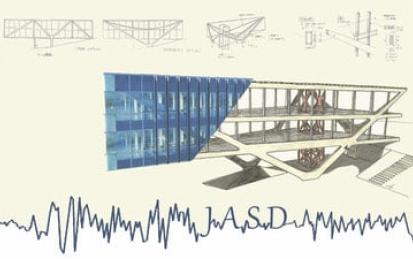

دوراتنا

Agri-Food Systems Analysis
This course will provide an introduction to critical skills for understanding and evaluating sustainability metrics in relation to Agri-Food systems.
-
Course by

-
 Self Paced
Self Paced
-
 120
120
-
 الإنجليزية
الإنجليزية

Agricultural Economic Modeling Tools
Learn how to utilize Agriculture Modeling tools to achieve economic and sustainability outcomes.
-
Course by

-
 20
20
-
 الإنجليزية
الإنجليزية

Sustainable Urban Development
Learn why cities are key in resolving global urbanization and sustainability challenges and how you can engineer tomorrow’s cities today.
-
Course by

-
 Self Paced
Self Paced
-
 32
32
-
 الإنجليزية
الإنجليزية

Transformative Citizen Science for Sustainability
Go beyond citizen-gathered data. Learn to design projects that actively mobilise citizens, policy makers and scientists to improve human and ecological wellbeing. In this advanced course, world leading experts from Wageningen University & Research share key principles and practices for Transformative Citizen Science for Sustainability. Join us and develop your own ideas about citizen science.
-
Course by

-
 الإنجليزية
الإنجليزية

Japanese Architecture and Structural Design
In this revised course, fundamental and modern approaches to Japanese structural design will be explained using historical overviews and Tokyo-Tech’s campus buildings as case studies. Learners will be able to interpret and apply seismic design concepts like energy-dissipating braced frames, spine frames, seismic retrofit, seismic isolation and seismic design of spatial structures.
-
Course by

-
 Self Paced
Self Paced
-
 الإنجليزية
الإنجليزية

Feeding a Hungry Planet: Agriculture, Nutrition and Sustainability
How do we create a healthy and sustainable diet for the growing world population?
-
Course by

-
 Self Paced
Self Paced
-
 الإنجليزية
الإنجليزية

Sustainability & Major Sport Events: Principles
Learn the five pillars of sustainability and how to apply these when planning and hosting a major sport event.
-
Course by

-
 الإنجليزية
الإنجليزية

Sustainability Analyst Fundamentals
The ASU Sustainability specialization introduces the role of a sustainability analyst, assesses sustainability challenges that face the planet and employers, and equips learners with the foundational skills needed to address these challenges.
-
Course by

-
 Self Paced
Self Paced
-
 الإنجليزية
الإنجليزية

Become a Sustainable Business Change Agent
About the course This specialization is for anyone who would like to improve how their company or organization impacts the environment, people and communities. We will introduce you to some of the key concepts and tools of sustainable business, then teach you how to be an effective change agent.
-
Course by

-
 Self Paced
Self Paced
-
 الإنجليزية
الإنجليزية

21st Century Energy Transition: how do we make it work?
NOTE: “21 st Century Energy Transition – How do We Make it Work?” has been updated as of December 2024 to include new highlighting new ideas, technologies and important developments since its launch in October 2022. Affordable, abundant and reliable energy is fundamental to human well-being and prosperity. For the past 150 years, more and more people have gained access to energy, primarily in the form of fossil fuels – coal, petroleum and natural gas.
-
Course by

-
 Self Paced
Self Paced
-
 17 ساعات
17 ساعات
-
 الإنجليزية
الإنجليزية

Global Health Security, Solidarity and Sustainability through the International Health Regulations
Welcome to the MOOC "Global Health Security, Solidarity and Sustainability through the International Health Regulations". We are very excited to have you on board and hope you will enjoy the course! In the coming 6 weeks, you will learn about the International Health Regulations (IHR), history of its creation and evolution, its major principles and implementation procedures, as well as challenges and future opportunities.
-
Course by

-
 Self Paced
Self Paced
-
 26 ساعات
26 ساعات
-
 الإنجليزية
الإنجليزية

Impact Measurement & Management for the SDGs
How can businesses and investors help fill the multi-trillion-dollar gap needed for sustainable development? Simply put: by incorporating sustainability and social impact factors on people and planet into management decisions. Through this course, anyone can learn to improve their organization's practice of impact measurement and management and align their ESG or impact activities and reporting with emerging global standards. Impact Measurement and Management for the SDGs is a collaboration between UNDP SDG Impact and the award-winning team at CASE at Duke University.
-
Course by

-
 Self Paced
Self Paced
-
 9 ساعات
9 ساعات
-
 الإنجليزية
الإنجليزية

Sustainable Cities and Communities
In this specialisation you will learn how to drive change in cities and communities towards sustainable, climate friendly, just, healthy and prosperous futures, and you will boost your career with new knowledge, understanding and skills for navigating urban transformations. This specialisation brings together a series of cutting-edge courses with world-leading teachers on cities, communities, sustainability, governance and innovation. This specialisation is offered by the IIIEE at Lund University and the City Futures Academy – an online learning community on urban transformations.
-
Course by

-
 Self Paced
Self Paced
-
 الإنجليزية
الإنجليزية

Employing Best Practices for Improving the Usability of LookML Projects
This is a self-paced lab that takes place in the Google Cloud console. In this lab, you will learn how to improve the usability and sustainability of LookML projects.
-
Course by

-
 Self Paced
Self Paced
-
 1 ساعات
1 ساعات
-
 الإنجليزية
الإنجليزية

Introduction to Environmental Science
To understand current environmental problems, we need to consider physical, biological & chemical processes that are often the basis of those problems. This course will give you the skills necessary to address the environmental issues we are facing today by examining scientific principles and the application of those principles to natural systems.
-
Course by

-
 Self Paced
Self Paced
-
 الإنجليزية
الإنجليزية

Energy and Environment
This course deals with both renewable and non-renewable energy. By applying scientific principles and considering real-world examples, you will examine: 1. Non-renewable fossil fuels with a focus on coal, petroleum and natural gas and the benefits and consequences of using each. 2. Renewable fuels such as wind and solar and identify that even renewable “green” energy sources have impacts as well as benefits. 3. Biodiversity and global change, which are the integrating units of environmental science. Additionally, you will explore answers to the following questions: 1.
-
Course by

-
 Self Paced
Self Paced
-
 23 ساعات
23 ساعات
-
 الإنجليزية
الإنجليزية

Population Health: Alternative Payment Models
The way we currently pay our care providers lead to suboptimal outcomes and unnecessary spending. Consequently, we fail to maximize the value of our health care services. We need to change provider payment models in order to keep health care systems financial sustainability. Doing nothing is not an option. But the question is, how do we do it? During this course, we will discuss the rationale for payment reforms and dive into the key design elements of Alternative Payment Models (APMs) and how they change care provider incentives.
-
Course by

-
 Self Paced
Self Paced
-
 20 ساعات
20 ساعات
-
 الإنجليزية
الإنجليزية

Worldviews - From Sustainability to Regeneration
This MOOC is the first part of an interconnected series of four MOOCs on Designing Resilient Regenerative Systems (DRRS) which bring together science, design and transformative praxis as a fluid, intervention-based and synergistic process for addressing complex challenges. This is explored through extending our worldviews, reframing complexity, designing as nature, activating our minds through physical movement, and connecting with new communities of practice.
-
Course by

-
 Self Paced
Self Paced
-
 الإنجليزية
الإنجليزية

Sustainable Consumption and Health
This course is an introductory and foundational course on sustainable consumption and health. In the first part of this course, we briefly review definitions of sustainability and the relationship between the three dimensions of sustainability and the UN-Environment Sustainable Environment Goals (SDGs), target and indicators. We then look at frameworks, indicators and footprint requirements to adequately measure sustainability, offering the opportunity to the participants to assess their own carbon and environmental footprint and make recommendation on how to reduce it.
-
Course by

-
 Self Paced
Self Paced
-
 14 ساعات
14 ساعات
-
 الإنجليزية
الإنجليزية

Population, Food, and Soil
This course explores the population-environment relationship. In this course, you will learn about the human population and the ways in which changes in the population affect the environment. Agriculture, soils, and the environmental implications of eating meat, vegetables, local, organic, sustainable, industrial, and other types of food are discussed too. We explore questions such as: 1. How many people live on Earth right now? 2. What is the carrying capacity of Earth? 3.
-
Course by

-
 Self Paced
Self Paced
-
 16 ساعات
16 ساعات
-
 الإنجليزية
الإنجليزية

Sustainable Vikings: Sustainability & Corporate Social Responsibility in Scandinavia
This course gives you immediate access to the world leading sustainability and corporate social responsibility (CSR) practices. Scandinavian firms dominate the major sustainability and CSR performance indicators including the Dow Jones Sustainability Index (DJSI). In this course we explore the concepts of sustainability and CSR and focus attention on how Scandinavian firms, like Novo Nordisk, have achieved superior sustainability and CSR performances.
-
Course by

-
 Self Paced
Self Paced
-
 13 ساعات
13 ساعات
-
 الإنجليزية
الإنجليزية

Management of Urban Infrastructures – part 1
Sustainability, Resilience and Efficiency are fundamental considerations for city managers in managing urban infrastructures. Today, more than 3.9 billion people, making up more than 54% of the global population, live in cities. Urbanization is expected to continue in the coming years, raising the urban population to 6.0 billion by 2045. This dramatic increase in urban populations will inevitably increase the demand for energy, mobility (transportation), water, and other urban services in every city around the world.
-
Course by

-
 Self Paced
Self Paced
-
 الإنجليزية
الإنجليزية

Set the Right Strategy with BCG Matrix
In this 1-hour long project-based course, you will be able to formulate your corporate strategy with the Boston Consulting Group (BCG) Matrix. BCG matrix is a strategic decision-making framework that helps in resource allocation among different strategic business units (SBUs) by categorizing them based on their ability to generate cash inflows against cash outflows. The matrix classifies business portfolio into four categories based on industry attractiveness (growth rate of that industry), and competitive position (relative market share).
-
Course by

-
 Self Paced
Self Paced
-
 2 ساعات
2 ساعات
-
 الإنجليزية
الإنجليزية

Renewable Energy: Fundamentals and Job Opportunities
This course prepares you to recognize the complexities and nuances of different renewable energy solutions, as well as relevant career opportunities (both technical occupations and roles not typically associated with clean energy). Learners are immersed in discussions about green energy technologies, the impact of sustainability on society, energy consumption in the United States and conservation.
-
Course by

-
 Self Paced
Self Paced
-
 23 ساعات
23 ساعات
-
 الإنجليزية
الإنجليزية

The Meat We Eat
The Meat We Eat is a course designed to create a more informed consumer about the quality, safety, healthfulness and sustainability of muscle foods and address current issues in animal agriculture in developed and developing countries.
-
Course by

-
 Self Paced
Self Paced
-
 14 ساعات
14 ساعات
-
 الإنجليزية
الإنجليزية



